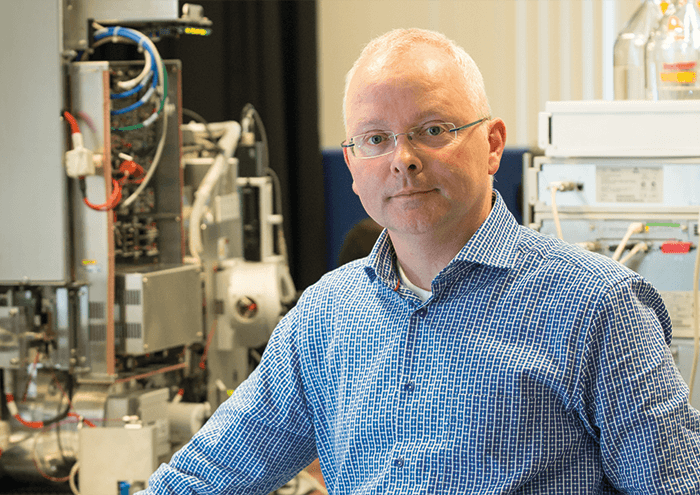
Protein Protagonist
Sitting Down With… Albert Heck, Scientific Director at the Utrecht Institute for Pharmaceutical Sciences, Netherlands and Scientific Director of the Netherlands Proteomics Centre.

False
Sitting Down With… Albert Heck, Scientific Director at the Utrecht Institute for Pharmaceutical Sciences, Netherlands and Scientific Director of the Netherlands Proteomics Centre.

Receive the latest analytical science news, personalities, education, and career development – weekly to your inbox.

Rich Whitworth completed his studies in medical biochemistry at the University of Leicester, UK, in 1998. To cut a long story short, he escaped to Tokyo to spend five years working for the largest English language publisher in Japan. "Carving out a career in the megalopolis that is Tokyo changed my outlook forever. When seeing life through such a kaleidoscopic lens, it's hard not to get truly caught up in the moment." On returning to the UK, after a few false starts with grey, corporate publishers, Rich was snapped up by Texere Publishing, where he spearheaded the editorial development of The Analytical Scientist. "I feel honored to be part of the close-knit team that forged The Analytical Scientist – we've created a very fresh and forward-thinking publication." Rich is now also Content Director of Texere Publishing, the company behind The Analytical Scientist.
False
False

April 3, 2025
13 min read
Computers can “see” and “hear,” but fully digitizing scent has so far eluded science – but that may soon change

December 3, 2024
3 min read
Syft Technologies’ William Pelet introduces the Syft Explorer – the world's first fully mobile, real-time, and direct trace gas analyzer

December 5, 2024
6 min read
Thermo Fisher Scientific’s high-sensitivity mass spec for translational omics research – the Stellar MS – is ranked 4th in our annual Innovation Awards
False